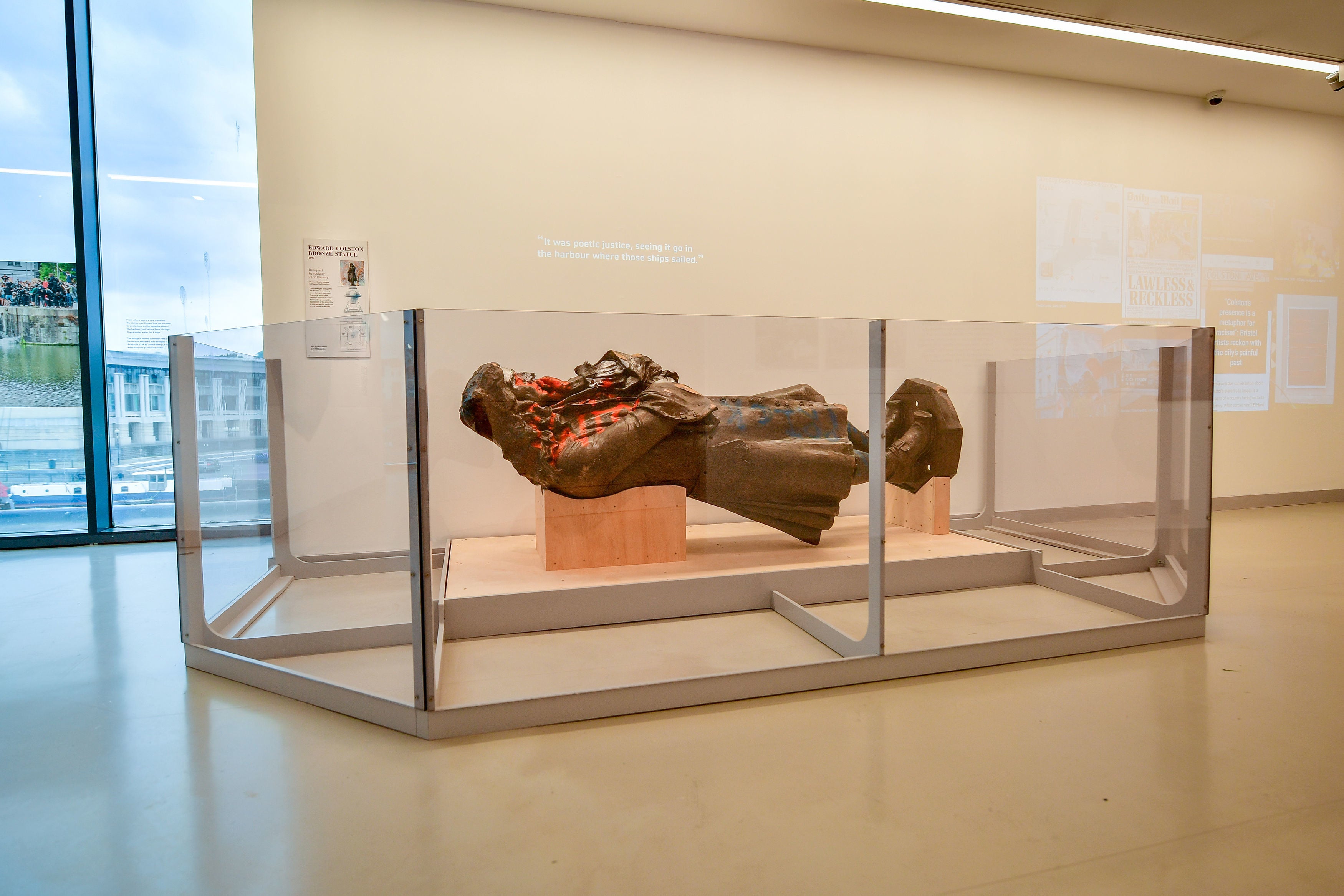Toppled statue of slave trader Edward Colston goes on public display
Exhibit is ‘for everyone to have your say on how we move forward together’, says commissioner

A statue of slave trader Edward Colston that was torn down by Black Lives Matter protesters in Bristol will be put on public display for people to decide its long-term future.
The bronze memorial was pulled from its plinth last June in the wake of the killing of George Floyd in the US, as demonstrators in the UK sought racial equality and a reckoning with Britain’s imperial history.
The statue of the 17th-century merchant who made part of his fortune from the Atlantic slave trade had long been a source of discontent in the city. Its toppling sparked a national conversation on Britain’s history and the figures it chooses to venerate.
On 7 June, it was rolled through the streets and dumped in Bristol harbour at Pero’s Bridge, named in honour of enslaved Bristol resident Pero Jones.
It was recovered from the water days later by Bristol City Council and put into storage.
On Friday, almost exactly a year after it was toppled, the statue will form the centrepiece of a temporary exhibition at the M Shed museum.
The graffiti daubed on the memorial as it was torn down has been preserved by conservationists and the statue will be displayed alongside demonstrators’ placards, a bicycle tyre that clung to it as it was pulled from the harbour, and a timeline of key events.
Visitors will also be asked to share their views on what should happen to the statue afterwards. Options include removing the statue from public view entirely, creating a museum or exhibition about the transatlantic slave trade, or restoring the statue to its plinth.
An online version of the display will be available, as will the public survey. The results will be shared with a commission set up to explore Bristol’s history in the wake of the statue’s toppling.
Bristol’s mayor Marvin Rees said: “[That was] undoubtedly a significant day in Bristol’s history and had a profound impact not just in our city but also across the country and around the world.
“The future of the statue must be decided by the people of Bristol and so I urge everyone to take the opportunity to share their views and help inform future decisions by taking part in the survey.”
Mr Rees, who set up the commission, has previously described the statue’s toppling as an “iconic moment” that must be “firmly attached to real change, real policy change”.
Feedback from the public survey will inform the commission’s recommendation on the long-term future of the Colston statue later this year.
Responses will also be archived and made publicly accessible as a resource for researchers, schools and those who wish to learn more about Bristol’s history and the city’s links to the transatlantic slave trade and its present-day legacy.
“This is an opportunity for everyone to have your say on how we move forward together,” said the commission’s chair, Professor Tim Cole.
“The display is not a comprehensive exhibition about Colston or transatlantic slavery in Bristol, but it is intended to be a departure point for continuing conversations about our shared history.”
Fran Coles, conservation and documentation manager at M Shed, said the conservation work carried out on the statue would prepare it for “whatever its future may be”, adding that the display “will enable visitors to take stock and make their own minds up concerning the future of the statue”.
Additional reporting by PA
Join our commenting forum
Join thought-provoking conversations, follow other Independent readers and see their replies
Comments
Bookmark popover
Removed from bookmarks